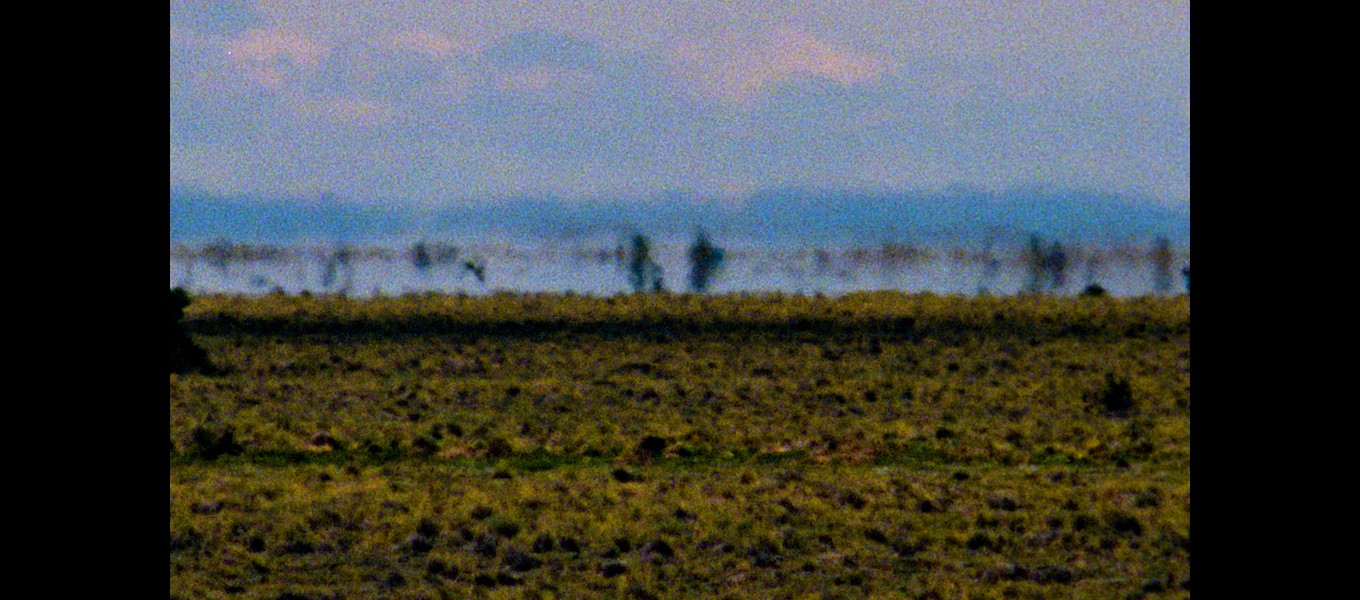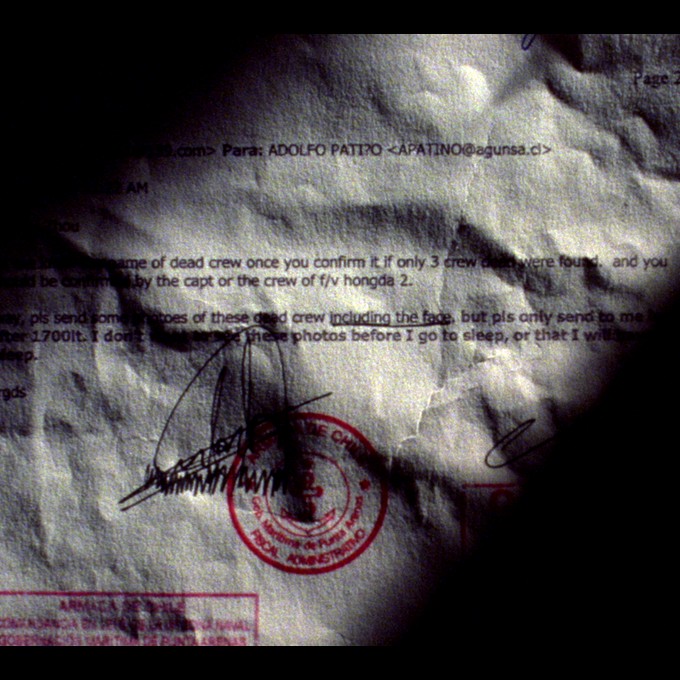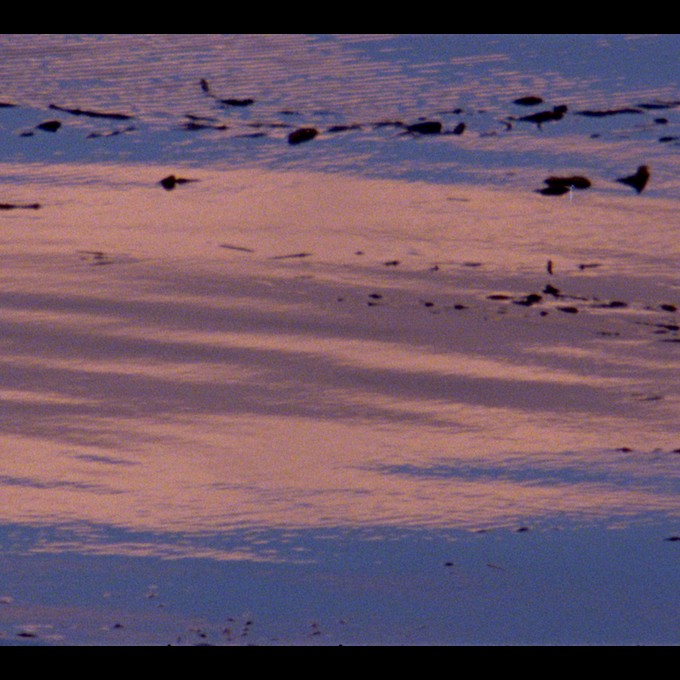Francisco Rodriguez
Una Luna de Hierro - Film - 28min - 2017
présenté dans le cadre de l'exposition panorama 19



Film
Everything begins lost in the waves. We make out
the setting sun, its pink and mauve reflections
colouring nearby water, calm, almost ideal. It’s
like the beginning of a melodrama, an idealised
image immediately disturbed by the deafening
noise of a boat’s motor that blankets the sea,
cancelling out any impression of tranquillity.
A word rises to the surface, coming from a barely
audible marine radio message: cadaver/cadavre.
Une luna de hierro hence opens with scrambling,
a mystery, a covering up. But also with the
discovery of what resurfaces, brought back by
the incessant movement of the waves.
Throughout the film, the landscapes of
the Magallanes will fill up with the dead,
reconstructing a scattered and multiple territory
rather than events, through the tale of a news
item in all the languages – legal or layman,
administrative or storytelling, sung or silent –
of which it is made up.
The ghosts which fill the film are those of four
Chinese workers, who died at sea after jumping
off a fishing boat in the hope of reaching Puntas
Arenas, a Chilean city north of the Strait of
Magellan. Birds have pecked out their eyes; their
mobile phones, passports, computers and food
were found. They were wearing lifejackets and
yet their deaths were deemed a suicide.
The inhabitants hence stand in front of their
homes or on the pebble beaches to recount
their version of events, children learn to read by
deciphering newspapers or they recite and sing
apocalyptic fables, telling of imaginary illnesses
that would attack their jaws, and dreaming of an
arc to harbour them, defying the wind to make
their voices heard. History stammers and breaks
down, the earth sweats and cadavers emerge.
At the end of all possible paths, only impressions,
directions, apparitions remain. We can no longer
see, we can just make out the silhouette, the
shadow of a man in the distance who undresses
and merges with the splashes of colour of a fuzzy
landscape, blurred by so much muted violence.
A death is reflected in another, the territory
spreads out and breaks into pieces, stories
repeat themselves and drift towards silence or
stupor, creating both a rhyme and an infinity,
an unknowable.
Charlotte Bayer-Broc
Francisco Rodriguez
Francisco Rodríguez was born in 1989 in Chile. A filmmaker and artist. He has directed the films El Gran Padre, Samanta, Appels téléphoniques, Pabellón de Interfectos and Una Luna de Hierro, among others. His practice is grounded in cinema, but also in photography and other expansive forms of projection. His work explores the multiplicity of visions, the opacity of violence, the traces of the dead in the world of the living, oral language and human struggle in violent territories. Recently his work has been presented at Film Society of Lincoln Center, CPH:DOX, Shangai FF, Zinebi, Clermont-Ferrand, DOCS DF, among others. He is currently living and working between Santiago (Chile) and Roubaix (France).
